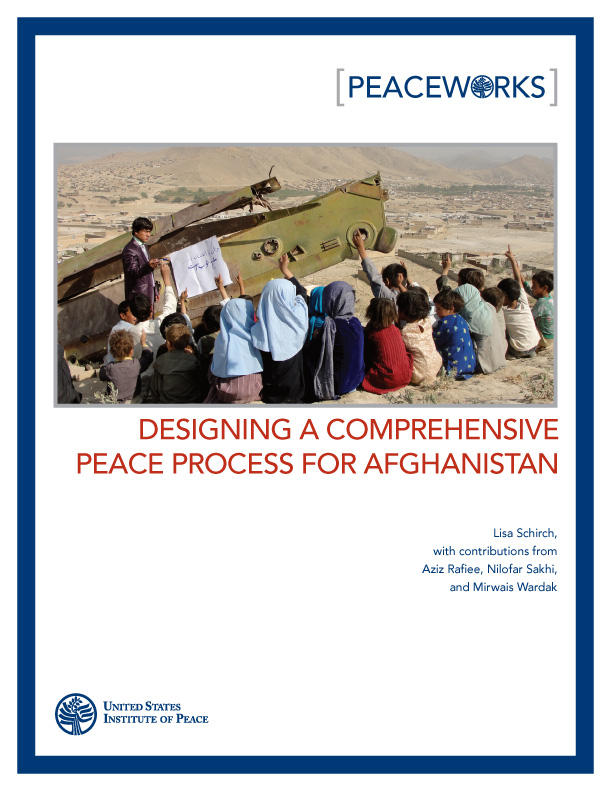Designing a Comprehensive Peace Process for Afghanistan
This report, sponsored by the Center for Conflict Management at the U.S. Institute of Peace, draws on comparative research literature on peace processes to identify lessons applicable to Afghanistan and makes recommendations to the international community, the Afghan government, and Afghan civil society for ensuring a more comprehensive, successful, and sustainable peace process.

Summary
- Current negotiations to end the war in Afghanistan fail to build on lessons learned from peace processes in other countries. Exclusion of key stakeholders, especially diverse sectors of civil society, and exclusion of key issues underlying the current conflict create a recipe for failure. In addition, the exclusive focus on either top-down negotiation between armed groups or bottom-up reintegration based on financial incentives is insufficient.
- Half of all peace agreements fail in part because too few people support them. History shows a peace process is more likely to succeed if it includes a wide spectrum of armed and unarmed actors. Building a national consensus to transition from war to peace in Afghanistan requires participation by diverse stakeholders.
- Current negotiations focus on a narrow agenda on conditions for the Taliban to lay down their arms and for the United States to leave Afghanistan. This agenda does not address significant root causes of the current conflict, such as government corruption and ethnic tensions.
- A comprehensive Afghan peace process would orchestrate work in three areas: developing a politically negotiated settlement, increasing legitimacy for the Afghan government, and building a national public consensus on the future relations between diverse groups.
- An Afghan peace process requires creating, coordinating, and sequencing a set of structured mechanisms, forums, and negotiation tables for participatory deliberation and decision making involving diverse stakeholders, regional countries, and all levels of Afghan society. A successful peace process combines high-level negotiation with “vertical” processes that link high-level negotiations with public dialogue processes in a way that is transparent, impartial, and inclusive.
- A comprehensive peace process in Afghanistan requires a much more deliberate design than currently exists. The hope of a quick and tight negotiation process is as illusory as the fantasy that firepower will achieve victory for either side in Afghanistan.
About the Report



